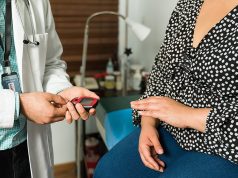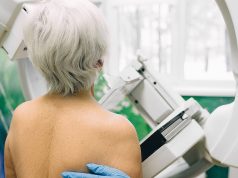Reduced risk of hospitalization or death seen at 28 days; lower risk seen for all individual mAb products
By Elana Gotkine HealthDay Reporter
TUESDAY, April 4, 2023 (HealthDay News) — For outpatients with COVID-19, early monoclonal antibody (mAb) treatment is associated with a lower risk for hospitalization and death, according to a study published online April 4 in the Annals of Internal Medicine.
Kevin E. Kip, Ph.D., from the University of Pittsburgh Medical Center, and colleagues examined whether early outpatient treatment of COVID-19 with mAbs is associated with a reduced risk for hospitalization or death at 28 days. Data were included for 2,571 treated patients and 5,135 nontreated control patients, all at high risk and eligible for mAb treatment.
The researchers found that the risk for hospitalization or death at 28 days was 4.6 and 7.6 percent in treated and nontreated patients, respectively (risk ratio, 0.61). In sensitivity analyses, the corresponding risk ratios were 0.59 and 0.49 for one- and three-day treatment grace periods, respectively. The estimated risk ratios were 0.55 and 0.53 for those receiving mAbs when the alpha and delta variants were presumed to be predominant, respectively, compared with 0.71 for the omicron variant-predominant period. A lower risk for hospitalization or death was suggested in relative risk estimates for all individual mAb products. The relative risk was 0.45 among immunocompromised patients.
“Early treatment with five different mAb products used in accordance with prevailing authorizations and guidelines for specific SARS-CoV-2 [severe acute respiratory syndrome coronavirus 2] variants was consistently associated with lower risk for hospitalization or death over nearly two years,” the authors write. “The rapid evolution of new SARS-CoV-2 variants warrants timely, continuous evaluation of both mAb and non-mAb treatment approaches.”
GlaxoSmithKline and Vir Biotechnology donated some of the sotrovimab used in the study.
Copyright © 2023 HealthDay. All rights reserved.








